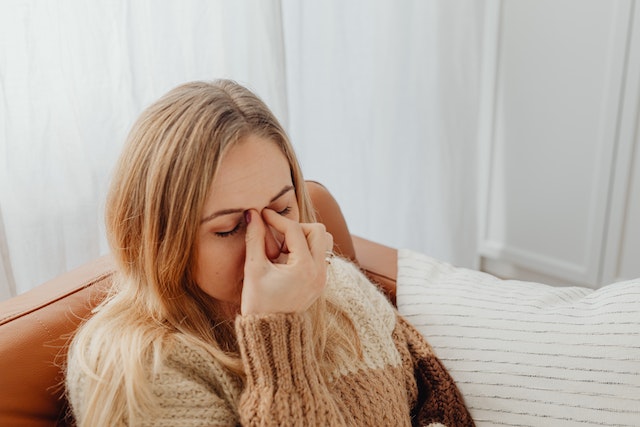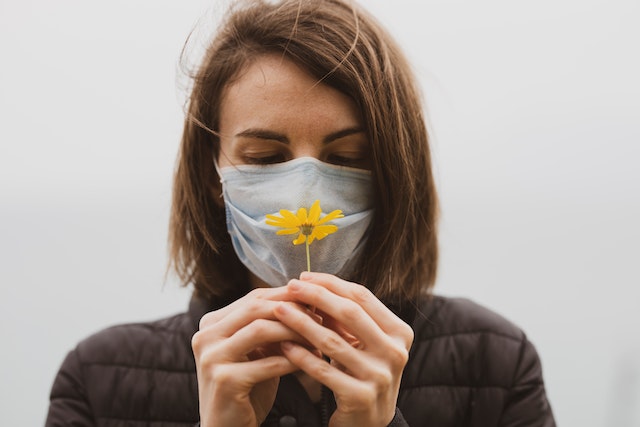Monthly Archives: April 2023
Sinusitis and Allergies: Understanding the Link and Effective Treatments
Sinusitis and allergies are two common conditions that are closely linked. In fact, many people who suffer from allergies also experience chronic sinusitis. In this blog post, we will explore the link between these two conditions and discuss effective treatments that can help you find relief.

What is Sinusitis?
Sinusitis is an inflammation of the sinus lining that can cause a range of symptoms, including facial pain and pressure, congestion, headaches, and a reduced sense of smell. It can be caused by a variety of factors, including bacterial or viral infections, allergies, or structural abnormalities in the nasal cavity.
What are Allergies?
Allergies occur when the immune system overreacts to a foreign substance, such as pollen or pet dander. Common allergy symptoms include sneezing, itching, runny nose, and watery eyes. For some people, allergies can also trigger sinusitis.
The Link between Sinusitis and Allergies
The sinuses are connected to the nasal passages, and allergies can cause inflammation in the nasal cavity that can lead to sinusitis. When someone with allergies is exposed to an allergen, such as pollen or dust mites, their body releases histamines. Histamines are responsible for causing allergy symptoms, but they can also cause the blood vessels in the sinuses to become inflamed, leading to sinusitis.
Treatments for Sinusitis and Allergies
If you are experiencing symptoms of sinusitis or allergies, it is important to seek treatment from an experienced allergist. They can help you identify the cause of your symptoms and develop an effective treatment plan. Some common treatments for sinusitis and allergies include:
- Antihistamines: These medications block the effects of histamines, reducing allergy symptoms and preventing sinus inflammation.
- Decongestants: Decongestants work by shrinking the blood vessels in the nasal cavity, reducing congestion and pressure in the sinuses.
- Nasal corticosteroids: These medications reduce inflammation in the nasal cavity and sinuses, helping to alleviate symptoms of both allergies and sinusitis.
- Immunotherapy: Immunotherapy involves exposing the body to small amounts of an allergen over time, helping the immune system build up a tolerance and reducing allergy symptoms.
- Surgery: In some cases, surgery may be necessary to correct structural abnormalities in the nasal cavity that are causing chronic sinusitis.
Prevention Tips
 While there is no guaranteed way to prevent sinusitis or allergies, there are steps you can take to reduce your risk of developing these conditions. Some tips include:
While there is no guaranteed way to prevent sinusitis or allergies, there are steps you can take to reduce your risk of developing these conditions. Some tips include:
- Avoiding allergens: Identify the allergens that trigger your symptoms and take steps to avoid them as much as possible.
- Keeping the home clean: Regularly clean your home to remove dust, pet dander, and other allergens that can trigger symptoms.
- Staying hydrated: Drinking plenty of fluids can help keep mucus thin and flowing, reducing the risk of sinusitis.
- Using a humidifier: Adding moisture to the air with a humidifier can help soothe irritated nasal passages and reduce congestion.
- Getting regular checkups: Regular checkups with an allergist can help identify and treat allergy and sinusitis symptoms before they become chronic.
Sinusitis and Allergies: Conclusion
In conclusion, if you are experiencing sinusitis symptoms, it’s important to schedule an appointment with a top NYC allergist like Boyan Hadjiev MD, who can help diagnose and treat the underlying cause of your condition. By taking a comprehensive approach that considers both allergies and other factors that may be contributing to your sinusitis, Dr. Hadjiev can help you find long-term relief and improve your overall quality of life. Don’t suffer through sinusitis symptoms any longer.
Contact Dr. Sneeze at Allergy, Asthma and Sinusitis P.C. to schedule a consultation today.
Allergy, Asthma and Sinusitis P.C
Boyan Hadjiev, MD
30 East 40th Street
Suite 1200
New York, NY 10016
212-319-5282
Hay Fever: Symptoms, Treatment, and Prevention
 Hay fever, also known as allergic rhinitis, is a common condition that affects millions of people worldwide. It is caused by allergens such as pollen, dust mites, and animal dander. When these allergens enter the body, the immune system overreacts, causing a range of symptoms.
Hay fever, also known as allergic rhinitis, is a common condition that affects millions of people worldwide. It is caused by allergens such as pollen, dust mites, and animal dander. When these allergens enter the body, the immune system overreacts, causing a range of symptoms.
If you’re experiencing symptoms of this type of allergic reaction, it’s important to seek treatment from an allergist like Boyan Hadjiev MD, located in New York City. In this blog post, we’ll explore the symptoms, treatment options, and prevention methods for “hay fever”.
Symptoms of Hay Fever
Symptoms can vary from person to person, but they typically include:
- Runny or stuffy nose
- Sneezing
- Watery or itchy eyes
- Itchy throat, mouth, or ears
- Ear congestion
- Headache
- Fatigue
- Difficulty sleeping
Treatment Options for Hay Fever
There are several treatment options available for hay fever, including:
Antihistamines
These medications block the effects of histamine, a chemical that is released during an allergic reaction. Antihistamines can help relieve symptoms such as sneezing, itching, and runny nose.
Nasal corticosteroids
These medications reduce inflammation in the nasal passages and can help relieve symptoms such as congestion, runny nose, and sneezing.
Decongestants
These medications can help relieve nasal congestion by narrowing the blood vessels in the nasal passages.
Immunotherapy
Also known as allergy shots, immunotherapy can help desensitize the immune system to allergens over time. This can reduce the severity of allergy symptoms.
Prevention Methods for Hay Fever
Prevention methods for hay fever include:
Avoiding allergens
Try to avoid exposure to pollen, dust mites, and animal dander as much as possible. Stay indoors on days with high pollen counts and use air conditioning to filter out allergens.
Keep your home clean
Regularly vacuum and dust your home to reduce the amount of allergens in the air.
Wear a mask
If you need to do outdoor activities such as gardening, wear a mask to reduce your exposure to allergens.

Take medications as prescribed
If you have hay fever, it’s important to take your medications as prescribed by your allergist.
Allergy Treatment from Top NYC Allergist Boyan Hadjiev MD
If you’re experiencing hay fever symptoms, it’s important to seek medical attention from an allergist like Boyan Hadjiev MD. Dr. Hadjiev can perform allergy testing to determine what allergens are causing your symptoms and develop a treatment plan tailored to your individual needs.
Don’t let allergies control your life – seek treatment from Dr. Sneeze today!
Contact Dr. Sneeze
Boyan Hadjiev MD also known as “Dr. Sneeze”
30 East 40th Street, Suite 1200
New York, NY 10016
212-319-5282
Serving all of New York City and the Tri State Area including Zip Codes: Top Allergist NYC Midtown, Chelsea and Clinton: 10001, 10011, 10018, 10019, 10020, 10036 | Gramercy Park and Murray Hill: 10010, 10016, 10017, 10022 | Greenwich Village and Soho: 10012, 10013, 10014 | Lower Manhattan: 10004, 10005, 10006, 10007, 10038, 10280 | Lower East Side: 10002, 10003, 10009 | Upper East Side: 10021, 10028, 10044, 10128 | Upper West Side: 10023, 10024, 10025
